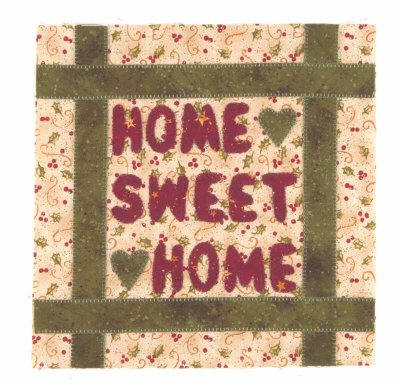That Was Quick
Leisurely Day at Sea Begins With Jon And Grandpa Searching Out Coffee
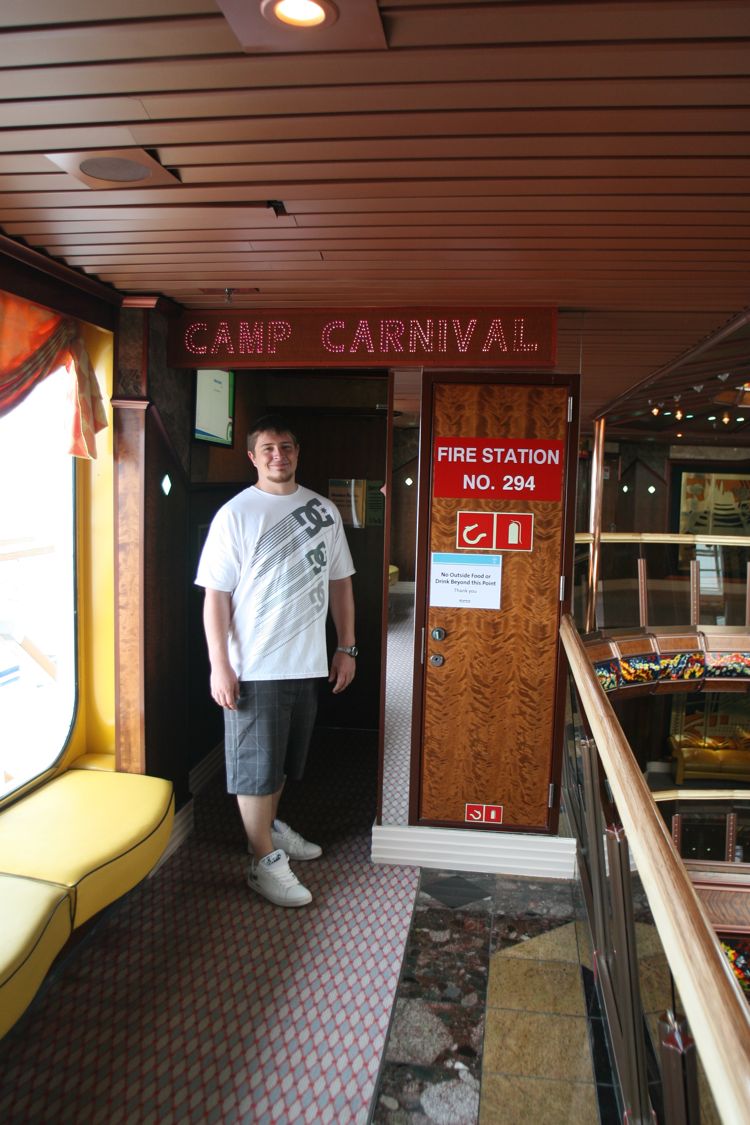
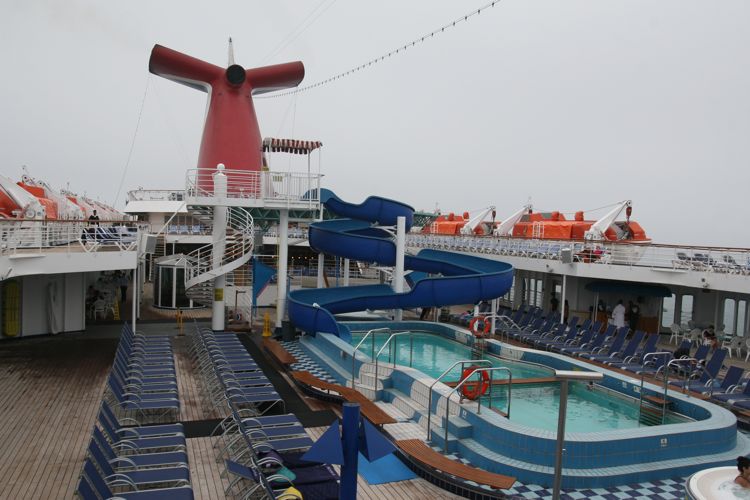
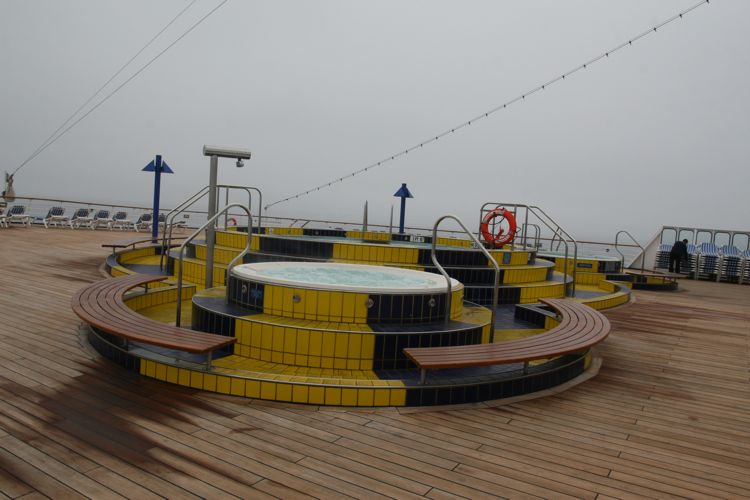
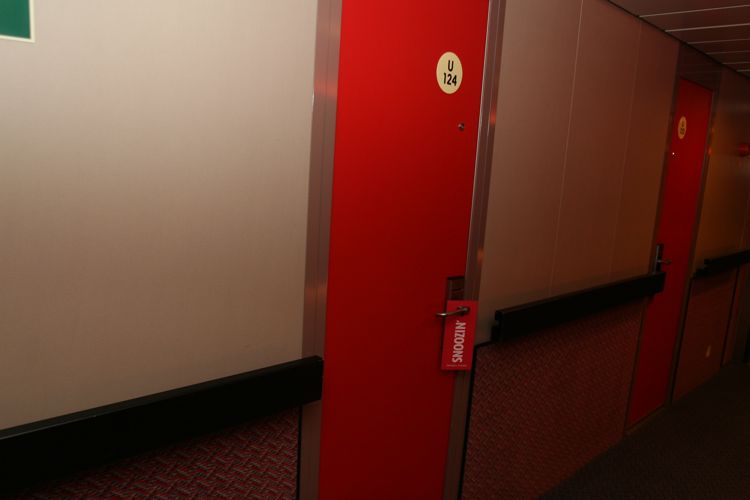
Start The Day With Exercise
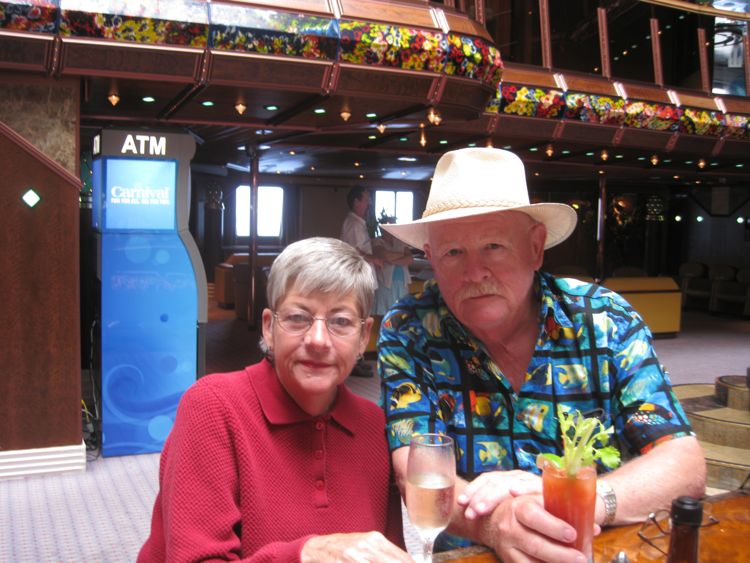
Arm bending exercise is very beneficial
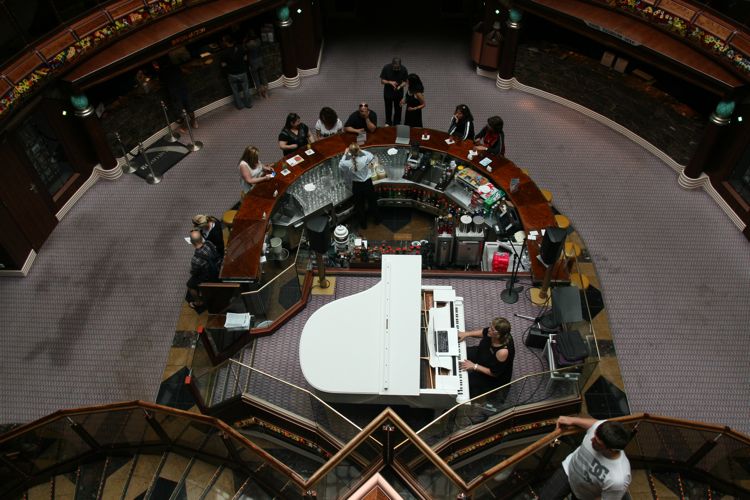
Lunch Time
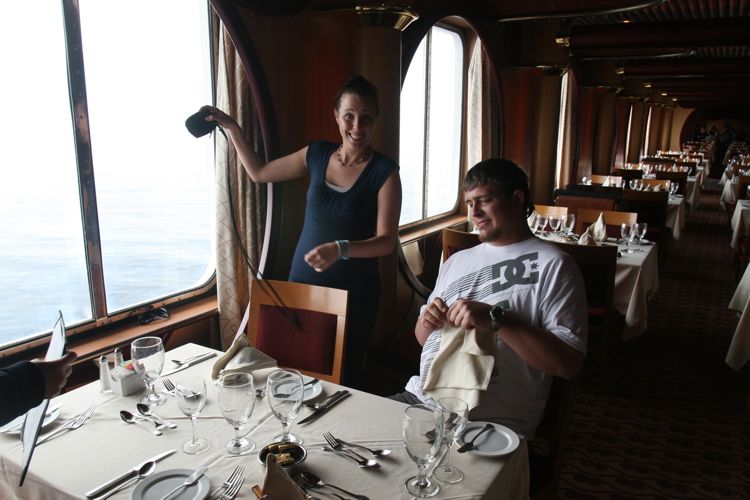
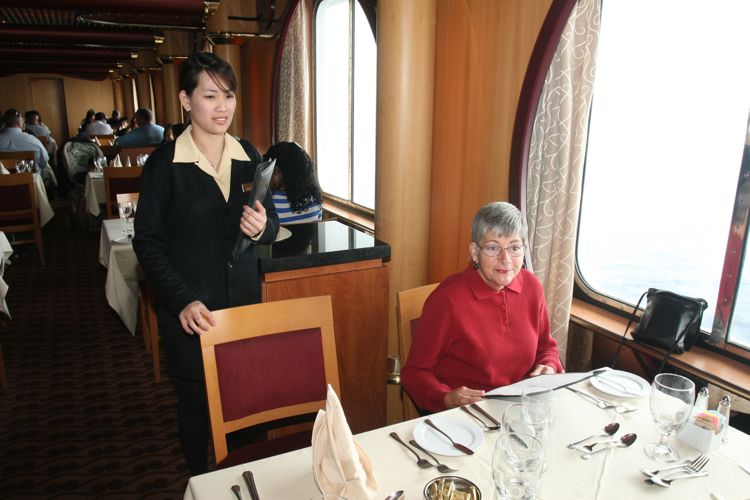
We Exercised After Lunch
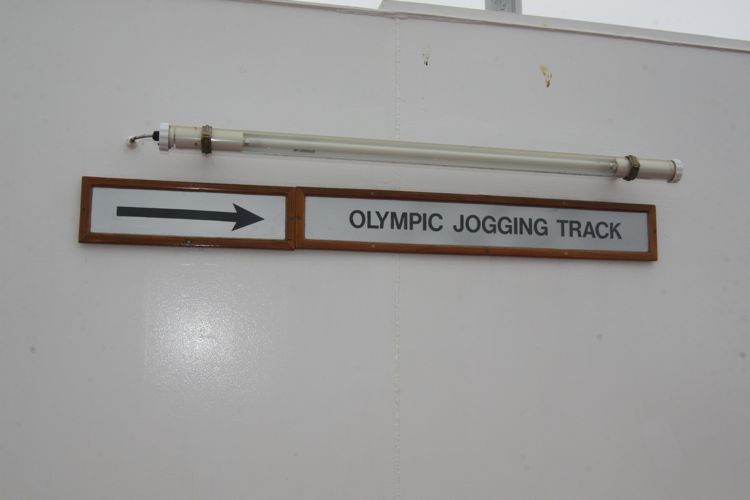
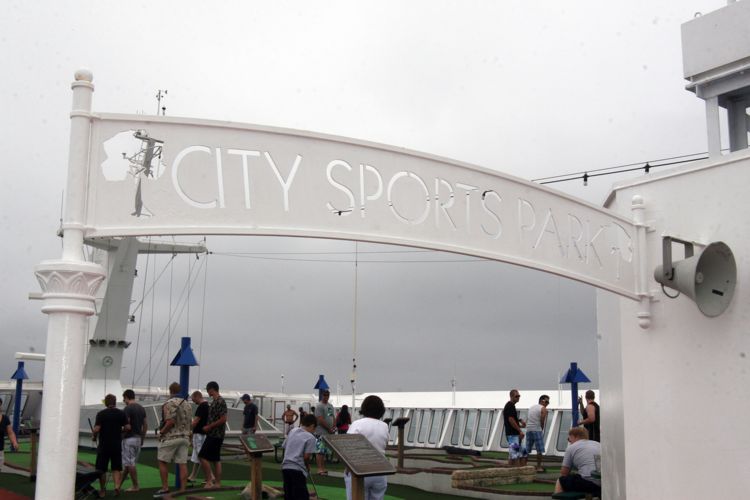
Miniature Golf
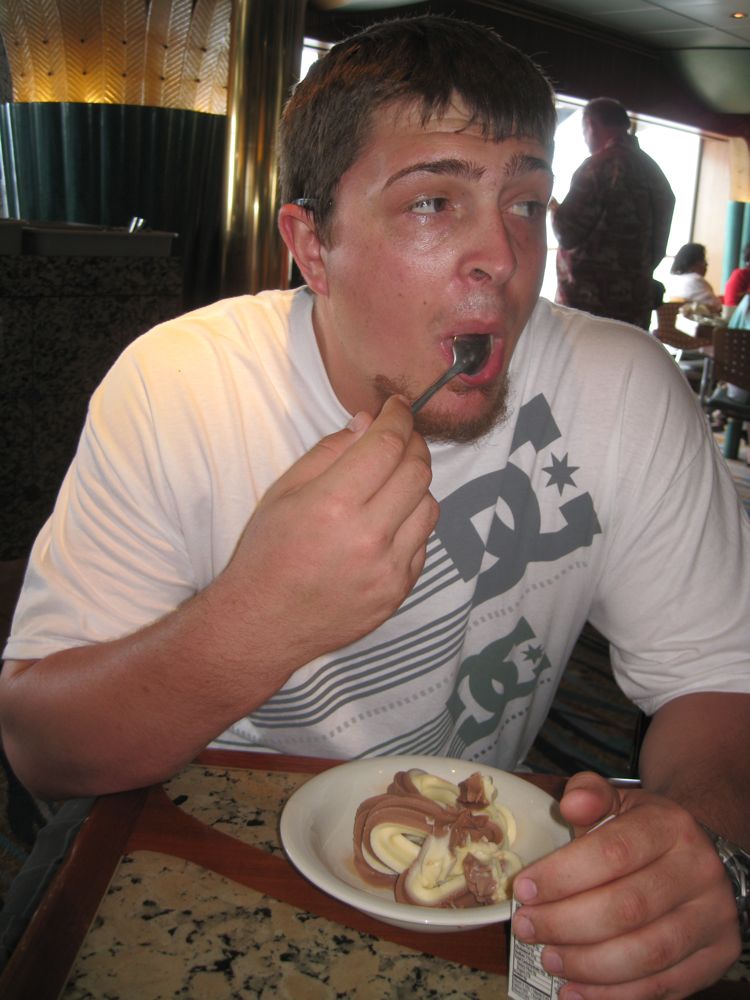
Golf requires ice cream refills
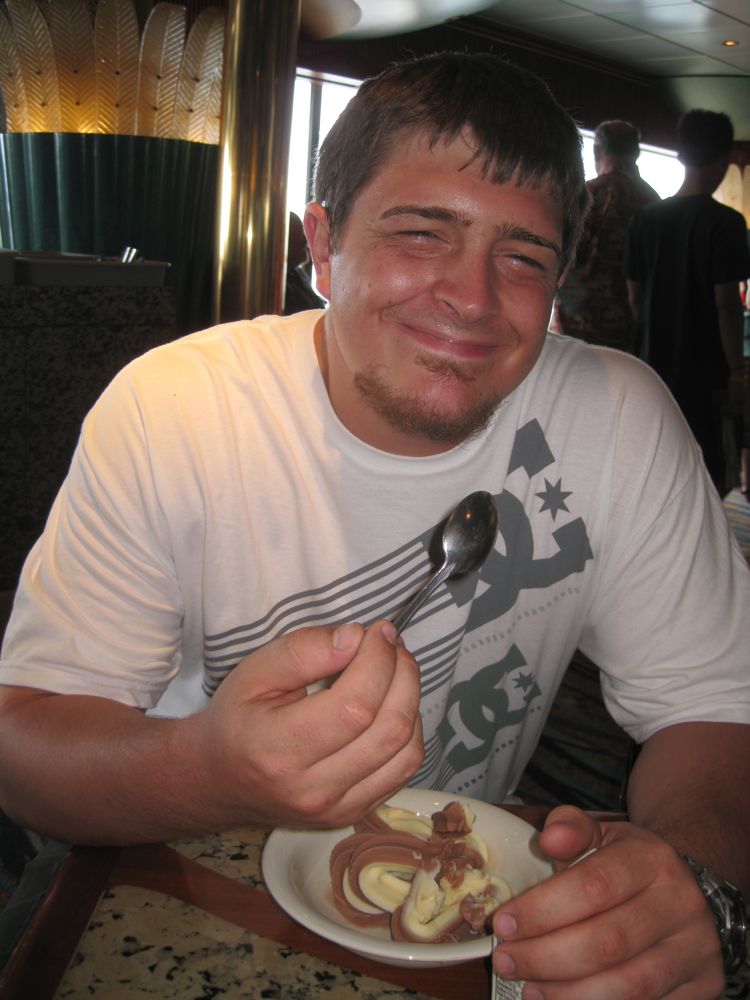
Ice Cream
Drinks Required Before Trivia

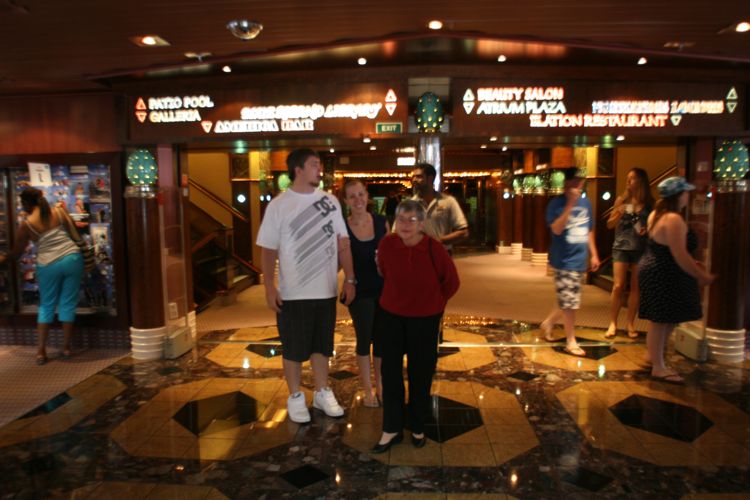
Time For Trivia
Did you know? - The trivia (singular trivium, adjective trivial) are the three lower Artes Liberales, i.e. grammar, rhetoric and logic. These were the topics of basic education, foundational to the quadrivia of higher education, and hence the material of basic education, of interest only to undergraduates.
Beginning in the 1960s, the plural trivia in particular became used for knowledge that is nice to have but not essential, specifically detailed knowledge on topics of popular culture. From this usage, the expression came to apply more to information of the kind useful almost exclusively for answering quiz questions, hence also the brand name Trivial Pursuit (1982).
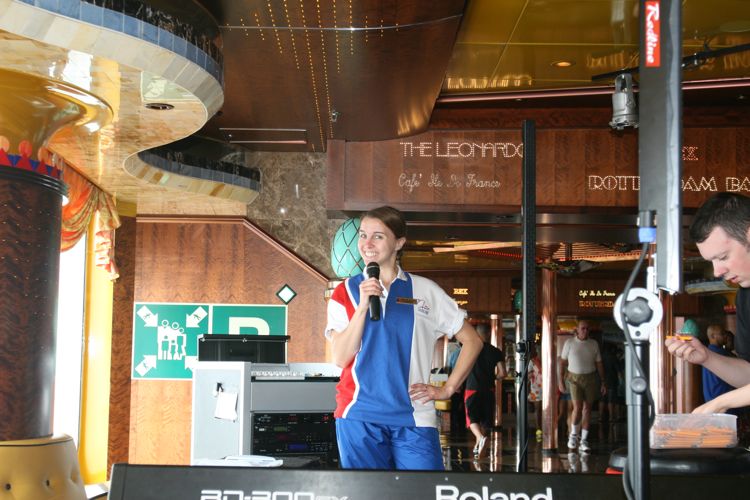
Show us those pearl whites
Did you know? - The word was popularized in its current meaning in the 1960s by Columbia University students Ed Goodgold and Dan Carlinsky, who created the earliest inter-collegiate quiz bowls that tested culturally significant yet ultimately unimportant facts, which they dubbed "trivia contests". The first book treating trivia of this universal sort was Trivia (Dell, 1966) by Goodgold and Carlinsky, which achieved a ranking on the New York Times best seller list; the book was an extension of the pair's Columbia contests and was followed by other Goodgold and Carlinsky trivia titles. In their second book, More Trivial Trivia, the authors criticized practitioners who were "indiscriminate enough to confuse the flower of Trivia with the weed of minutiae"; Trivia, they wrote, "is concerned with tugging at heartstrings," while minutiae deals with such unevocative questions as "Which state is the largest consumer of Jell-O?" (Answer: California) But over the years the word has come to refer to obscure and arcane bits of dry knowledge as well as nostalgic remembrances of pop culture
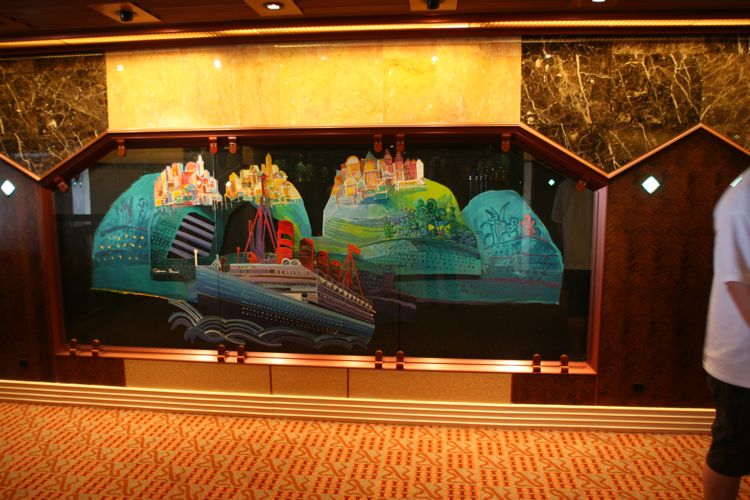
The Pool Area Was A Zoo
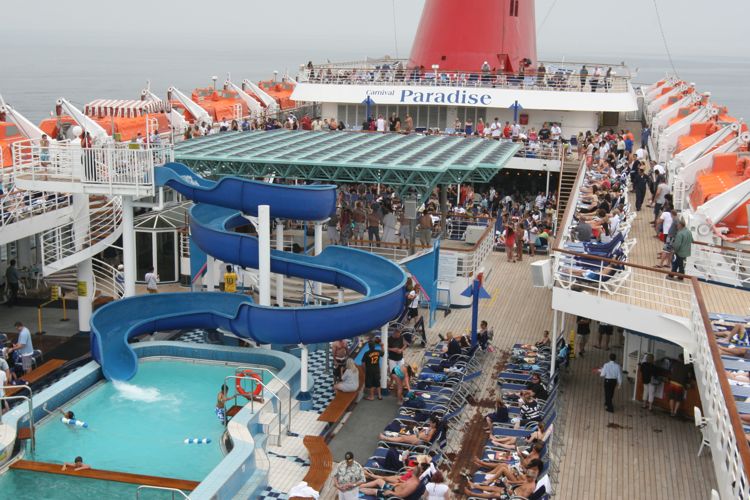
We Found Dancing Before Dinner
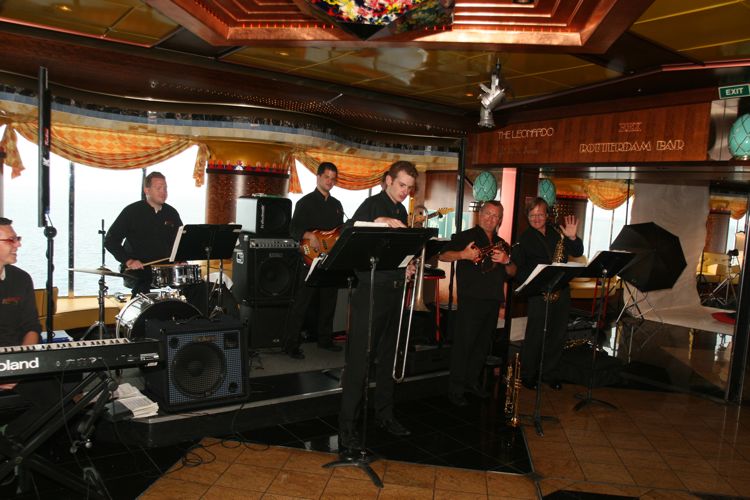
The Last Supper
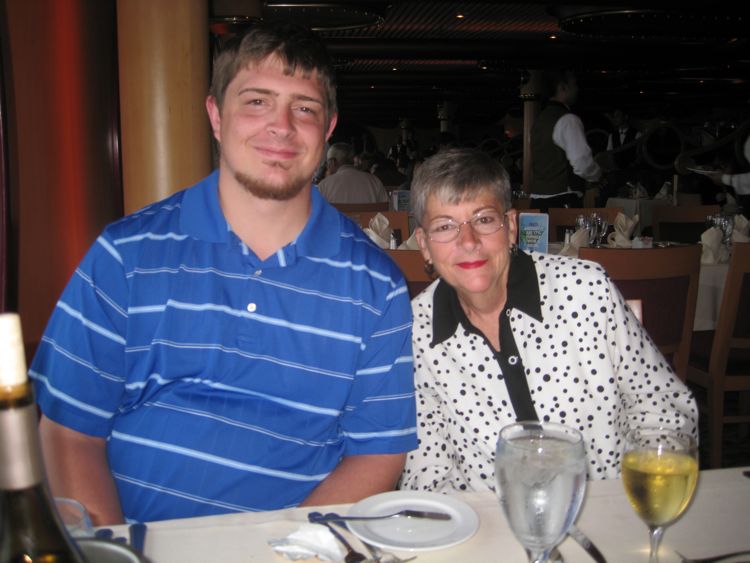
These two "always" behave
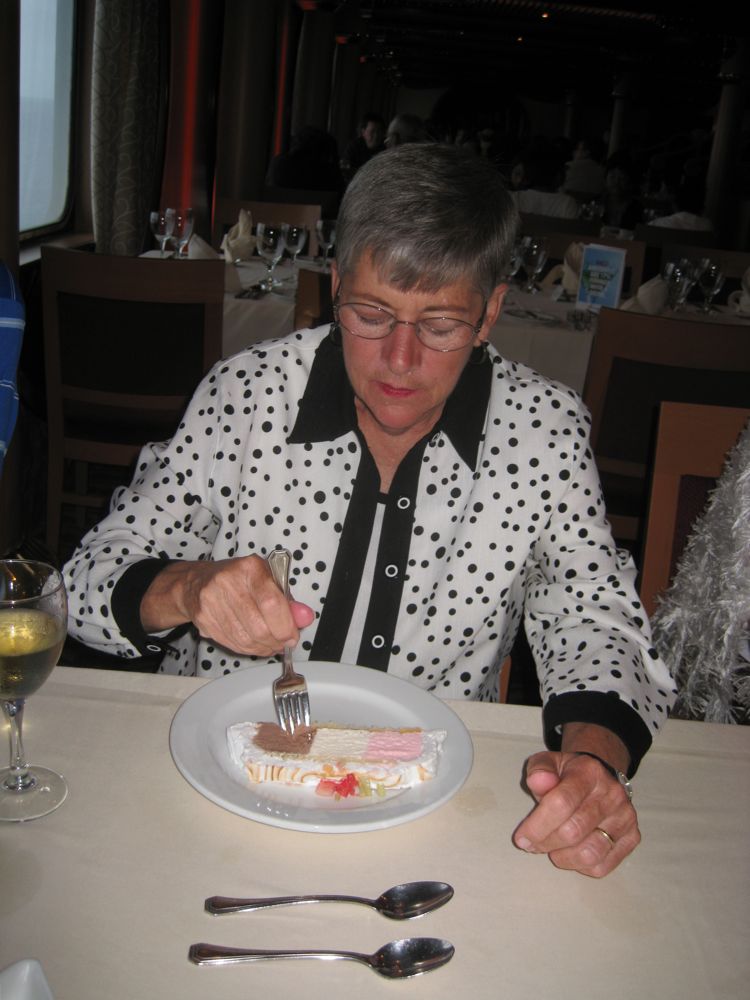
Baked Alaska
Did you know? - Baked Alaska (also known as glace au four, omelette à la norvégienne, Norwegian omelette and omelette surprise) is a dessert made of ice cream placed in a pie dish lined with slices of sponge cake or Christmas pudding and topped with meringue. The entire dessert is then placed in an extremely hot oven for just long enough to firm the meringue. The meringue is an effective insulator, and the short cooking time prevents the heat from getting through to the ice cream.
Its name was coined at Delmonico's Restaurant in 1876 to honor the recently acquired American territory.
February 1 Was Baked Alaska Day.
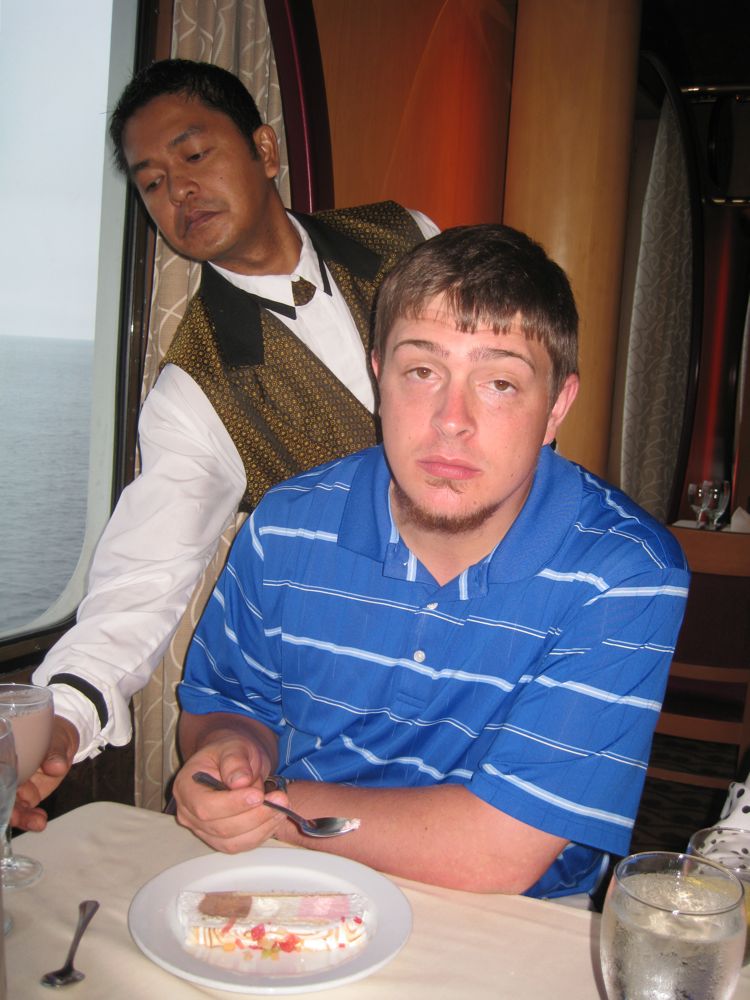
His fourth piece
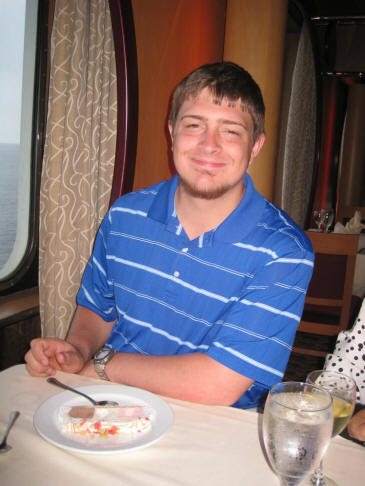
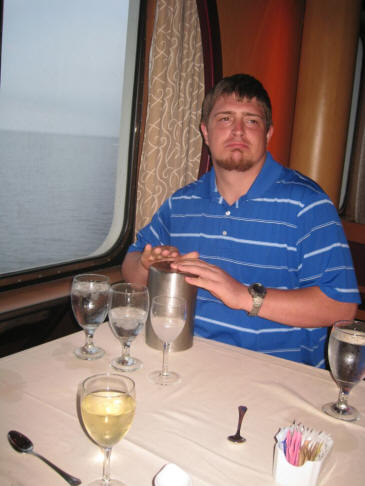
Happy (plate full) and sad (plate gone)
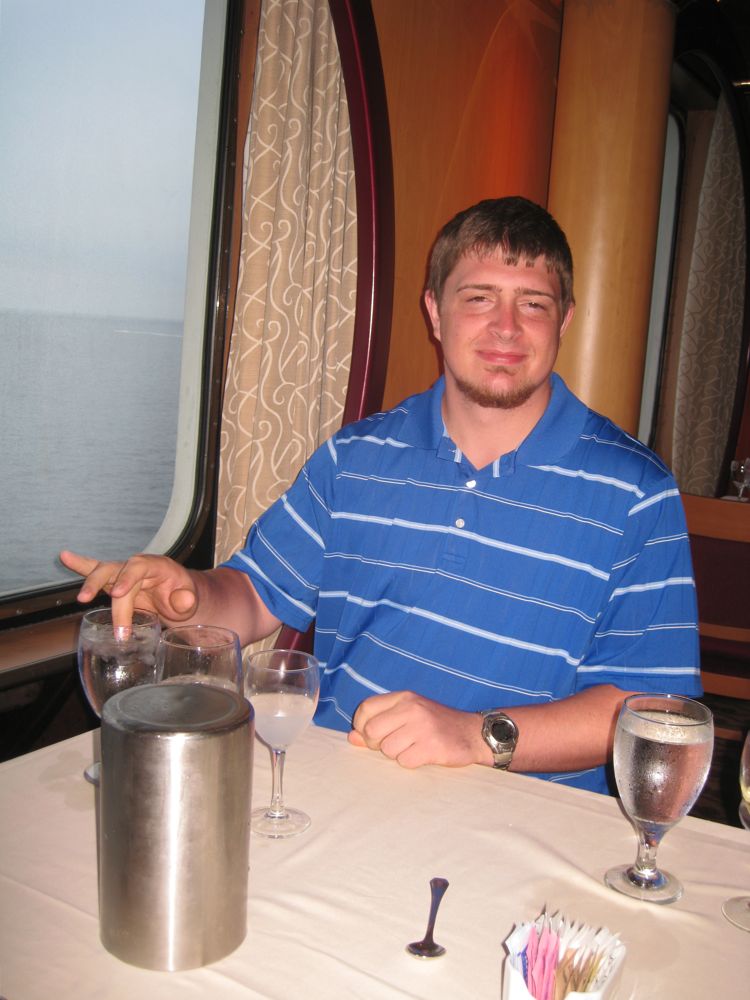
Time for music with a glass harp
Did you know? - A glass harp (Glasharfe in German; also called musical glasses, singing glasses, angelic organ, verrilion or ghost fiddle) is an instrument made of upright wine glasses. It was created in 1741 by Irishman Richard Pockrich, who is known as the first virtuoso of the musical glasses.
The composer Christoph Willibald Gluck played the musical glasses. He performed in London and Copenhagen. His instrument consisted of 26 goblets.
The instrument was popular in the 18th century. Pockrich's contemporary, Ford, published Instructions for the Playing of the Musical Glasses while Bartl published a German version.
It is played by running moistened or chalked fingers around the rim of the glasses. Each glass is tuned to a different pitch, either by grinding each goblet to the specified pitch, in which case the tuning is permanent, or by filling the glass with water until the desired pitch is achieved.
Did you know? - "Macarena" is a Spanish song by Los del Río about a woman of the same name. It was popular between 1995 and 1996, and continues to have a cult following. As a result of their lounge act, Los del Río were invited to tour South America in March 1992 and, while visiting Venezuela, they were invited to a private party held by the Venezuelan empresario (of Cuban descent) Gustavo Cisneros. Many prominent Venezuelans were in attendance that night, including former president Carlos Andrés Pérez.
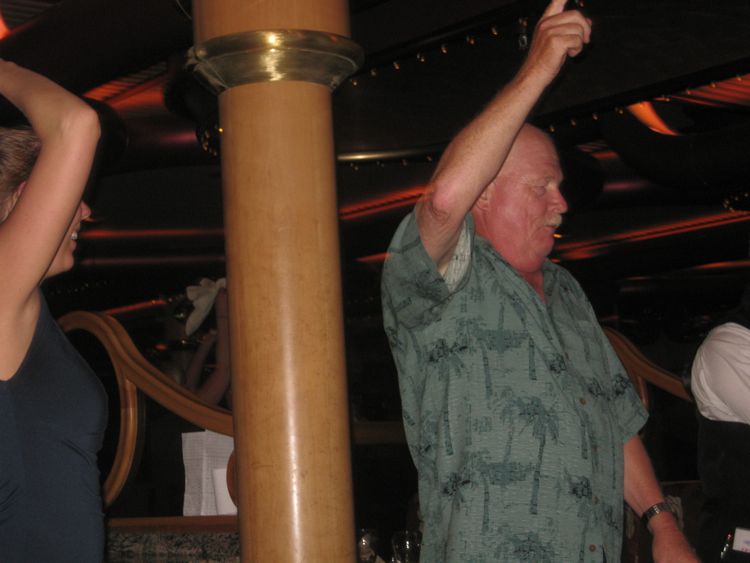
We ent To Bingo To Save Seats For The Show
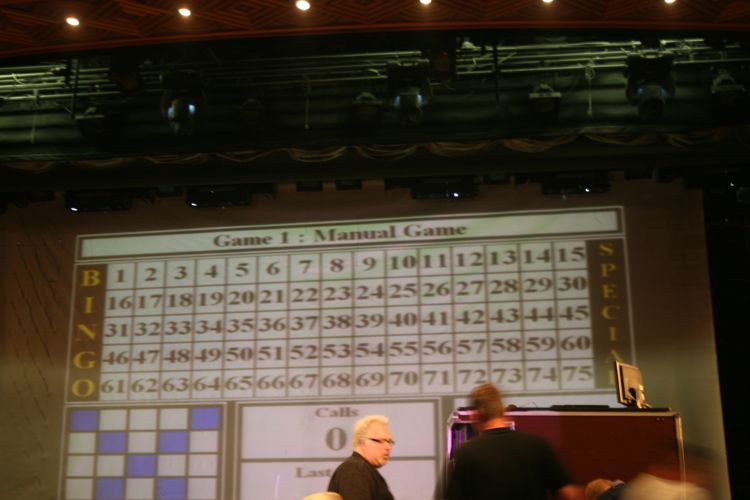
We did not win
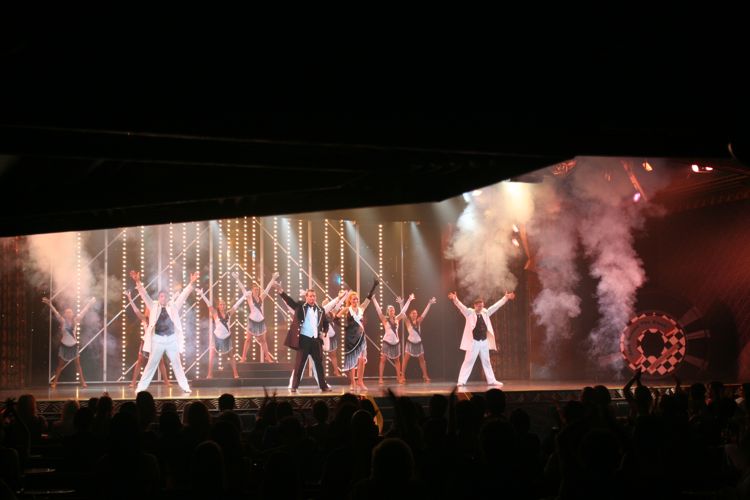
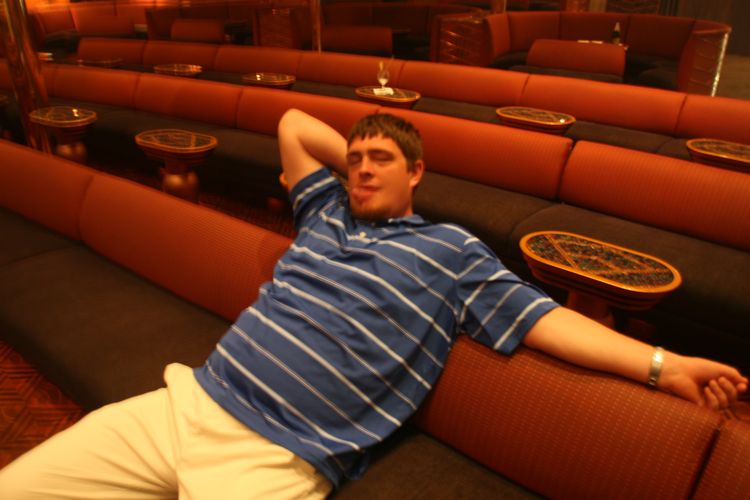
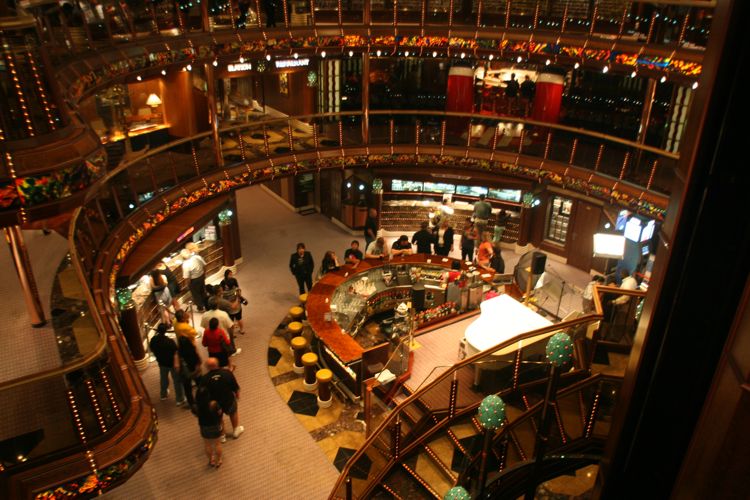
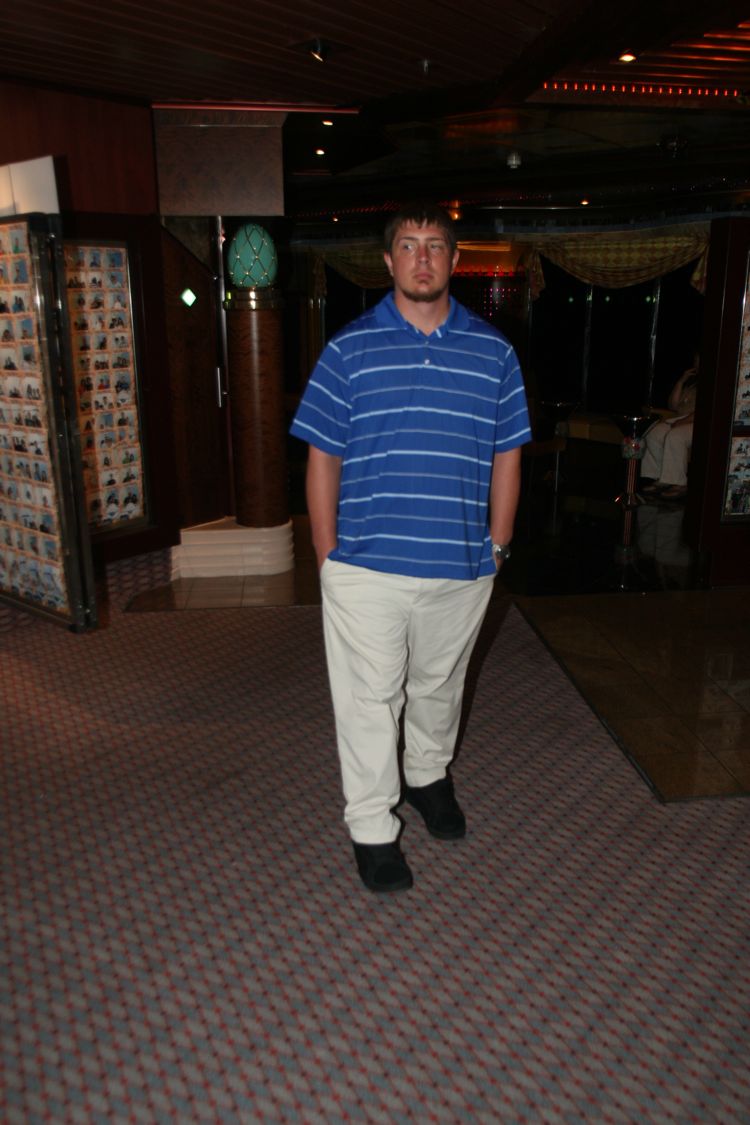
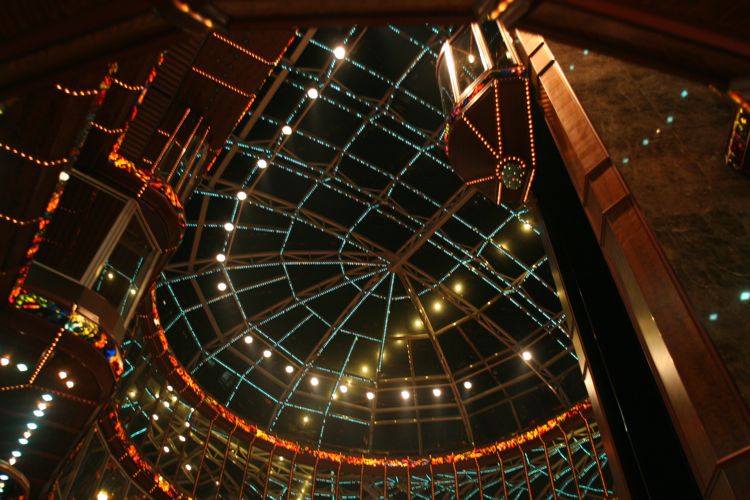
Time For Beddy-Bye
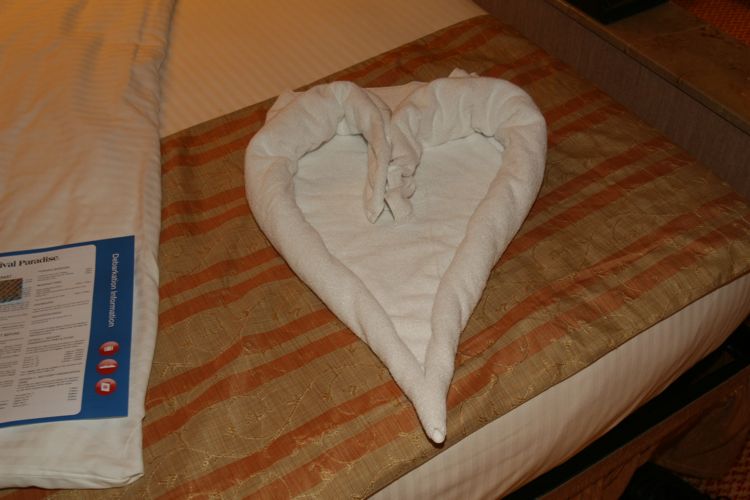
A towel heart this evening
Arrival In Long Beach
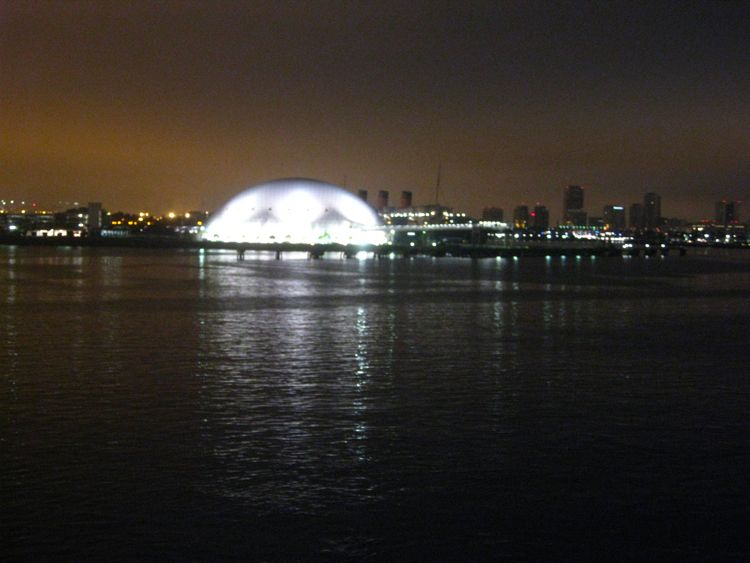
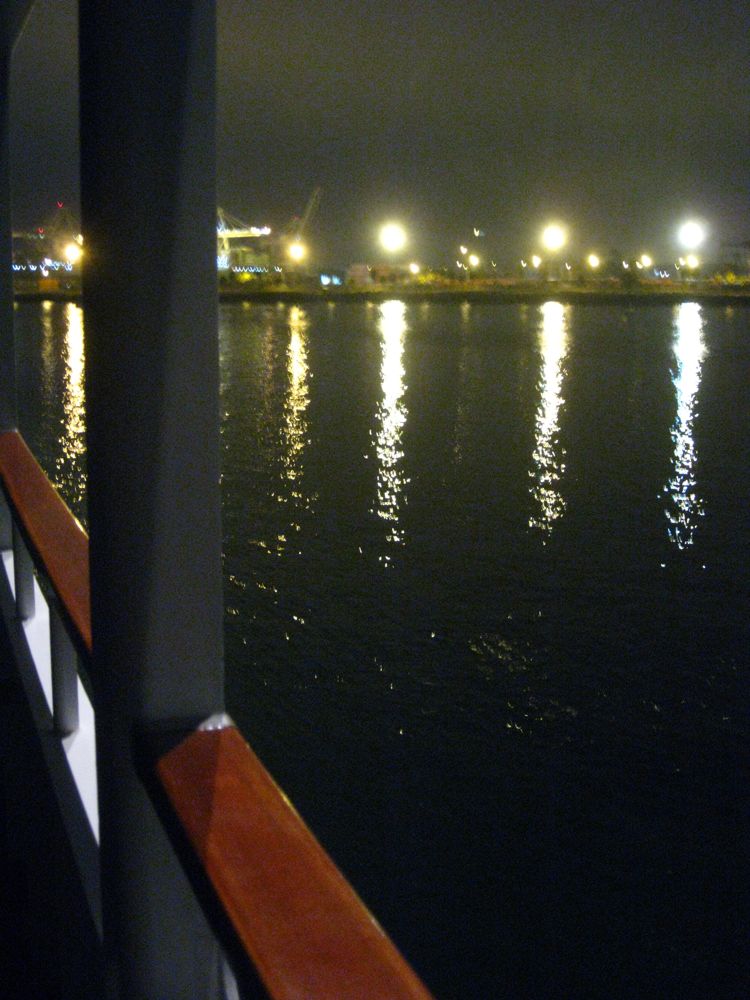
Sneaking into port under the cover of darkness
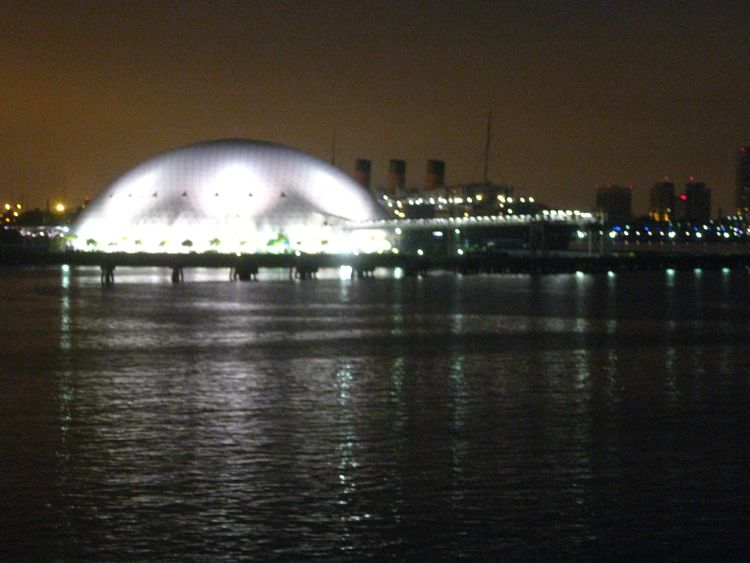
Long Beach at 5:00 am
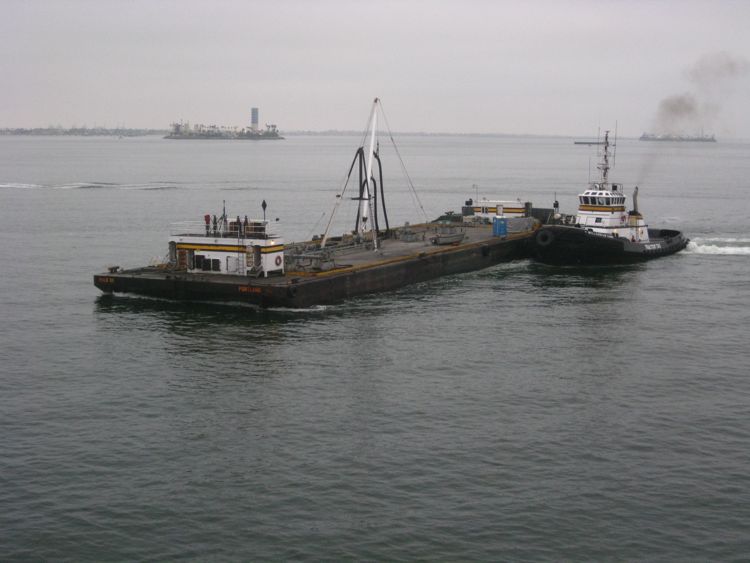
Here comes the fuel
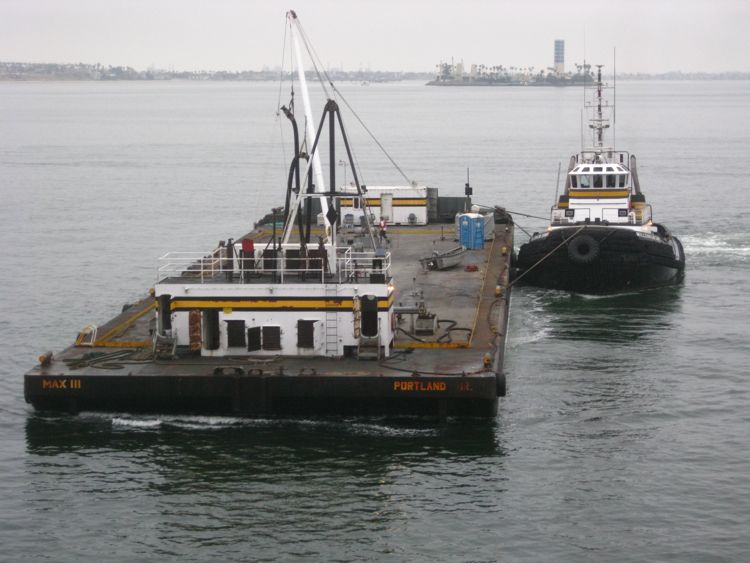
No bumping allowed
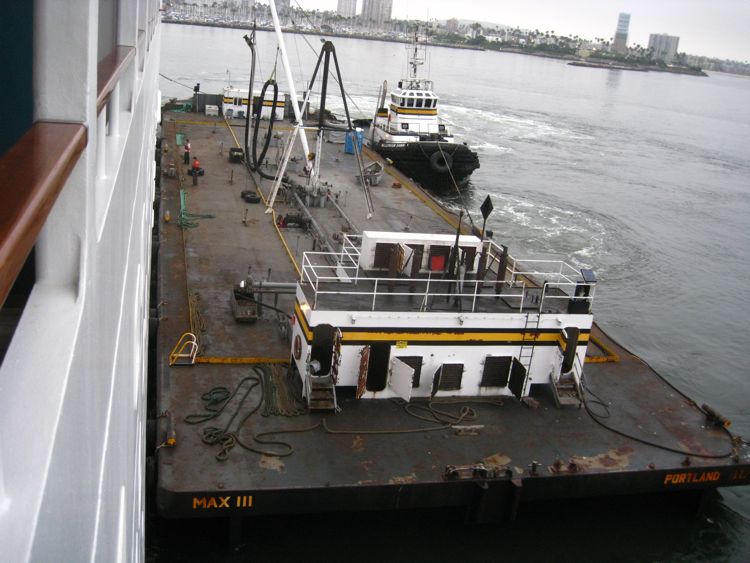
Filler Up
We Walked The Plank To Get Home!
Did you know? - Walking the plank was a form of murder or torture thought to have been practised by pirates, mutineers and other rogue seafarers. The victim was forced to walk off the end of a wooden plank or beam extended over the side of a ship, falling into the water to drown, sometimes with bound hands or weighed down, often into the vicinity of sharks (which would often follow ships). The earliest known use of the phrase is the latter half of the 18th century. Some writers in the 20th century speculated that walking the plank may be a myth created by cinema; however, the phrase "walking the plank" is recorded in English writer Francis Grose's "Dictionary of the Vulgar Tongue", which was published in 1788 (first published in 1785).


